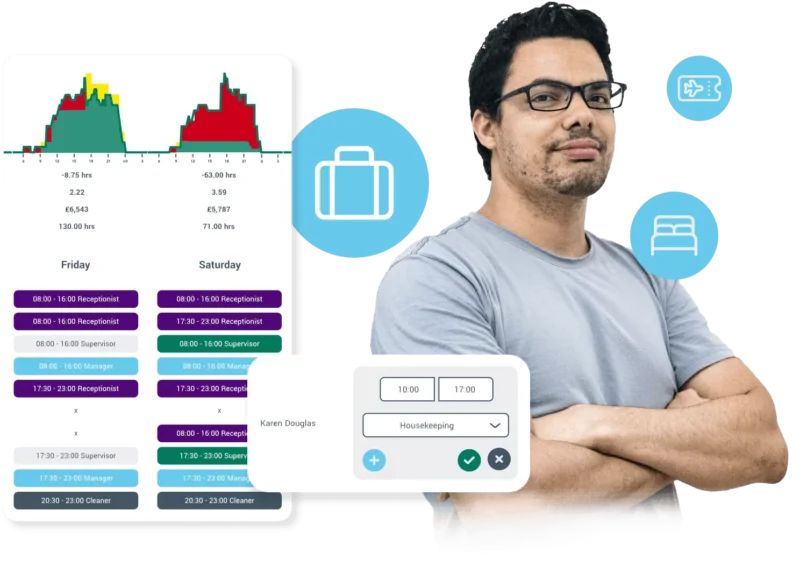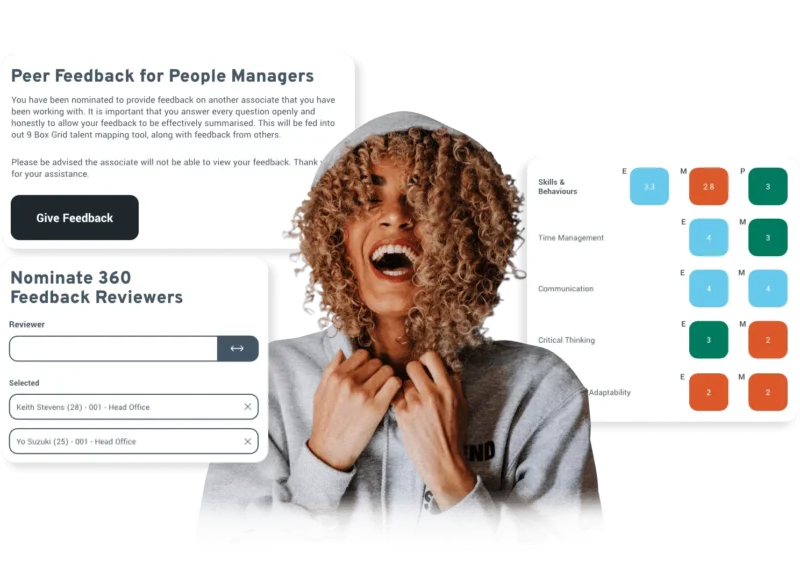As the UK enters a looming recession, the hotel industry, which has only just recovered from the after-effects of the global COVID-19 pandemic, is expected to be hit hard once again.
Inflation is rising, the cost of living is increasing, and the inability to raise prices paired with labour shortages are all affecting the sustainability of organisational success.
This challenging environment has forced hotels to rethink their strategies – with operational cost reduction on every hotelier’s mind. But how can we do that when the annual turnover of the hotel industry is 105%? Retaining staff is an issue, and the costs associated with recruiting, training, and lack of resources only add to the existing challenges.
The current situation calls for a clear and concise approach to address these issues and find sustainable solutions. Hoteliers must carefully review their operational processes, identify inefficiencies, streamline operations, and explore possible ways to automate tasks.
Read our latest guide: Hotel HR tips for effective staff management >
Tackling operational costs through smart workforce management
According to market research firm IDC, companies lose 20 to 30 percent of revenue annually due to operational inefficiencies. This is a significant loss, especially for an industry that is already facing challenges in terms of revenue and profitability.
One major contributor to operational inefficiencies is poor workforce management. Manual scheduling, inefficient labour allocation, and high turnover rates all contribute to increased costs.
Want to save on operational costs? Never underestimate the power of workforce planning. It’s all about finding that sweet spot between having just enough hands on deck to deliver a stellar service without tipping the scales into the overstaffing territory. And companies must avoid running so lean that service takes a hit or risk of non-compliance with employment law regulations, which can lead to costly penalties and fines
Smart workforce management strategies can address these issues effectively. For example, scheduling staff based on forecasted occupancy can prevent both overstaffing and understaffing, ensuring optimal service levels without excessive labour costs.

Ensuring that you are scheduling staff with UK employment laws, regulations, and correct pay rates in mind can also help avoid potential compliance issues that could result in financial penalties.
In the fiercely competitive hotel industry, where margins are tight, and success depends on providing top-notch service while keeping costs low, smart workforce management can be a game-changer.
This is where the investment in a smart workforce management system comes in. By augmenting rota scheduling, labour allocation, and compliance processes, hotels can reduce operational costs, improve efficiency, and free up valuable time for hotel staff to focus on delivering exceptional service to guests.
You don’t have to worry about human errors or making the time to create these strategic rotas. With a smart workforce management system, you can easily create schedules based on your specific needs and requirements while also taking into consideration factors like employee availability, skills, and preferences.
Hoteliers must be proactive in finding efficient solutions to reduce operational costs without compromising on quality or compliance. And with smart workforce management strategies and systems in place, it is possible to achieve just that.
Cultivating a culture of engagement and retention
Did you know that the average cost of employee turnover is estimated to lie between one-half and two times the departing employee’s annual salary? This is a staggering figure, and one that should not be ignored.
In the hotel industry, where staff turnover rates are typically high, losing employees can significantly impact operational costs. Not to mention the negative effects of frequent turnover on service quality and guest satisfaction.
So, how can hotels improve employee retention? One effective way is by cultivating a culture of engagement. Employee engagement is not merely a buzzword – it’s a strategic approach that can dramatically reduce turnover rates and the associated costs.
Where every interaction matters, the engagement level of each employee directly impacts guest experiences and, by extension, the bottom line. High turnover not only disrupts the workflow and decreases productivity but also incurs significant costs in recruitment, training, and loss of organisational knowledge.
Effective employee engagement revolves around principles such as:
- Open communication, where employees feel heard and valued;
- Regular feedback, ensuring continuous improvement and growth;
- Recognition, acknowledging achievements and fostering a sense of accomplishment
These principles contribute to a work environment where employees are motivated, satisfied, and more likely to stay. With technology, you can achieve this in more meaningful ways, where you can communicate and engage with your employees in real time.
See, everything is done through the power of smart mobile phones these days. Every single one of your employees will hold one – so there is no better way than to engage them on a mobile device.
By giving them the ability to access their working schedules, the company’s communications channels, and the ability to respond to employee engagement surveys all through the convenience of their mobile device, you are both demonstrating your commitment to them and facilitating a more connected, motivated, and engaged workforce.
You connect them on a level that facilitates their belonging to the team – which is essential to employee retention.

Investing in employee development for long-term loyalty
Research highlights that lack of perceived development opportunities is one of the contributing factors to why people leave the hospitality industry.
The hotel industry is known for its fast-paced environment, and employees often see it as a stepping stone to other careers. However, by investing in employee development, hotels can change this perception and foster long-term loyalty among staff.
Training, career advancement opportunities, and personal growth programs show that the organisation values its employees and their future. Empower them to take ownership of their careers by offering a solution that allows them to track their career path and development plan in real time.

Not only does this demonstrate a commitment to employee growth and well-being, but it can also lead to higher levels of productivity, engagement, and job satisfaction.
You can also take this as an opportunity to upskill your workforce to ensure internal mobility when the need for certain skills is high, but the supply is low. For instance, cross-training employees in different departments can help fill gaps and maintain service levels during busy periods or when staff are absent.
Investing in employee development is an investment in the future of your hotel. By providing employees with opportunities to grow and develop, you are not only retaining top talent but also creating a more skilled and adaptable workforce that can drive the success of your business for years to come.
The best results happen when the systems talk
Now, it is all fun and games, having separate systems that manage your workforce planning, engage your staff and invest in their development. But the real magic happens when these systems are integrated, allowing seamless communication, data sharing, and decision-making.
For example, a smart workforce management system integrated with an employee engagement platform can provide insights into the teams or shifts with the highest engagement levels. This information can create staff rotas that further promote employee engagement and satisfaction. It can also identify areas lacking engagement, allowing managers to proactively address the issue before it escalates.
Similarly, an integrated workforce management and learning management system can help identify skills gaps within the organisation and tailor training programs accordingly. This not only improves employee development but also ensures a more skilled and efficient workforce that allows for internal mobility when the need arises.
In today’s technology-driven world, siloed systems are simply not enough to manage a successful hotel operation. Investing in integrated solutions that communicate and work seamlessly together is key to achieving optimal results and driving long-term success.
By investing in integrated solutions, you are not merely adapting to the changes in the hospitality industry – you are leading the way, setting a standard for excellence.
Book a demo with elementsuite today to explore how our integrated HR solution can help you reduce operational costs and improve attrition rates, ultimately driving service quality and guest satisfaction.




